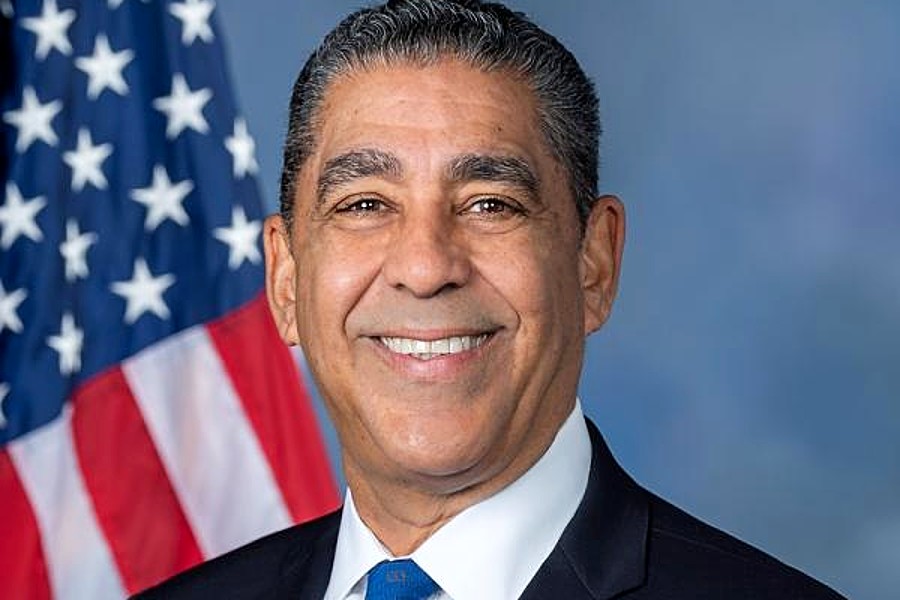The Federal Communications Commission at yesterday’s monthly meeting took what is being called an historic step to address the discriminatory advertising practice that exclude black-oriented and Hispanic-oriented radio stations from receiving a fair share of advertising revenues.
The the use of the “no urban dictate” policy, as it’s called, occurs when advertisers and their agencies intentionally by-pass urban and Latino stations, supposedly because the advertiser client has dictated that its ads not be placed with those outlets. African-American broadcasters have long said the unspoken policy existed. The issue was first brought to the FCC by the National Association of Black Owned Broadcasters (NABOB) 23 years ago.
The existence of the NUD policy was openly revealed in 1999 when a memo was leaked from the Katz Radio Group, an advertising rep firm, that expressly instructed its account executives not to conduct business with urban-formatted stations.
The new order adopted by the FCC “requires broadcasters renewing their licenses to certify that their advertising sales contracts do not discriminate on the basis of race or gender.” Proponents of the order say it will change the nature of contracts between advertisers, agencies and media, and that they expect the FCC to be vigilant in enforcing the new policy.
 “This historic civil rights action should spell the end of written and unwritten ‘no-urban’ and ‘no-Spanish’ dictates,” said a statement from David Honig (pictured), executive director of the Minority Media and Telecommunications Council. The group had aggressively pushed for the policy to be adopted.
“This historic civil rights action should spell the end of written and unwritten ‘no-urban’ and ‘no-Spanish’ dictates,” said a statement from David Honig (pictured), executive director of the Minority Media and Telecommunications Council. The group had aggressively pushed for the policy to be adopted.
“Based on the FCC’s own research, MMTC estimates that the FCC’s action today should produce a 5-10% increase in revenue for Black and Spanish radio specialists. Henceforth advertisers – as well as agencies and rep firms – must place nondiscrimination clauses in their ad sales contracts with broadcasters,” Honig said.
The MMTC in its statement also concluded that “the parties must observe these nondiscrimination clauses, just as they would observe any other terms of an advertising sales contract. The practical effect of this provision is that Black and Spanish stations’ account executives can no longer be denied an opportunity to bid for an ad buy, and such a bid can no longer be rejected because of what amounts to racial discrimination against the stations’ listeners or viewers. MMTC expects and anticipates that the FCC will enforce its advertising discrimination ban scrupulously.”
Also adopted by the FCC were plans to convene an “Access-to-Capital” conference in the first half of 2008 in New York City that will focus on the investment banking and private equity communities and opportunities to acquire financing.
Additionally the Commission announced it would create a guidebook on diversity that focuses on what companies can do to promote diversity in ownership and contracting.
The centerpiece issue of the meeting was the FCC’s adoption of new rules which loosened the restrictions on media companies that own broadcasting and newspaper properties in the same market. Critics said the ruling increases consolidation of media ownership into the hands of a declining number of owners.
U.S. Senator and Presidential candidate Barack Obama co-sponsored a bill that would nullify the FCC’s cross-ownership ruling. “Today, the FCC failed to further the important goal of promoting diversity in the media and instead chose to put big corporate interests ahead of the people’s interests,” he said in a statement.
“Minority-owned and operated newspapers and radio stations play a critical role in African-American and Latino communities and help to bring minority issues to the forefront of our national dialogue,” he added. “We must ensure that we have an open media market that represents all of the voices in our diverse nation and allows them to be heard.”
Related articles

Become a Harlem Insider!
By submitting this form, you are consenting to receive marketing emails from: . You can revoke your consent to receive emails at any time by using the SafeUnsubscribe® link, found at the bottom of every email. Emails are serviced by Constant Contact






















